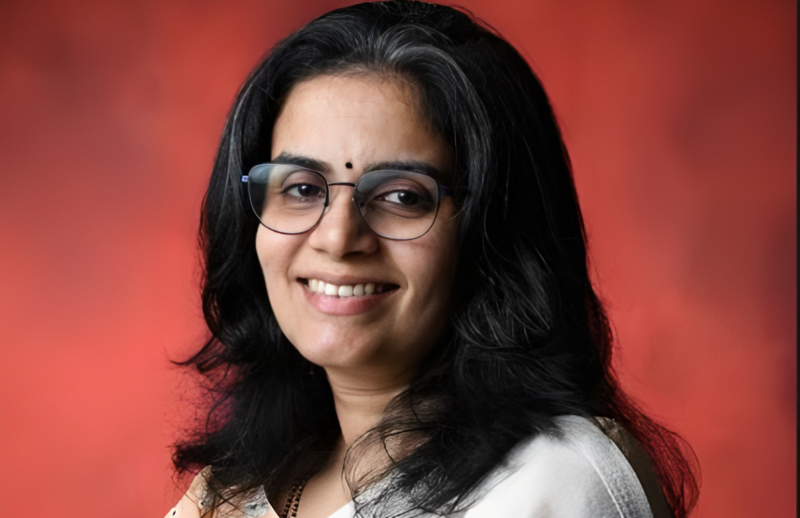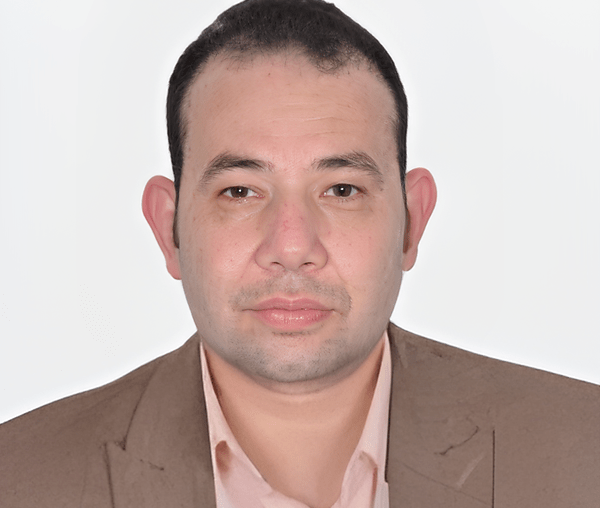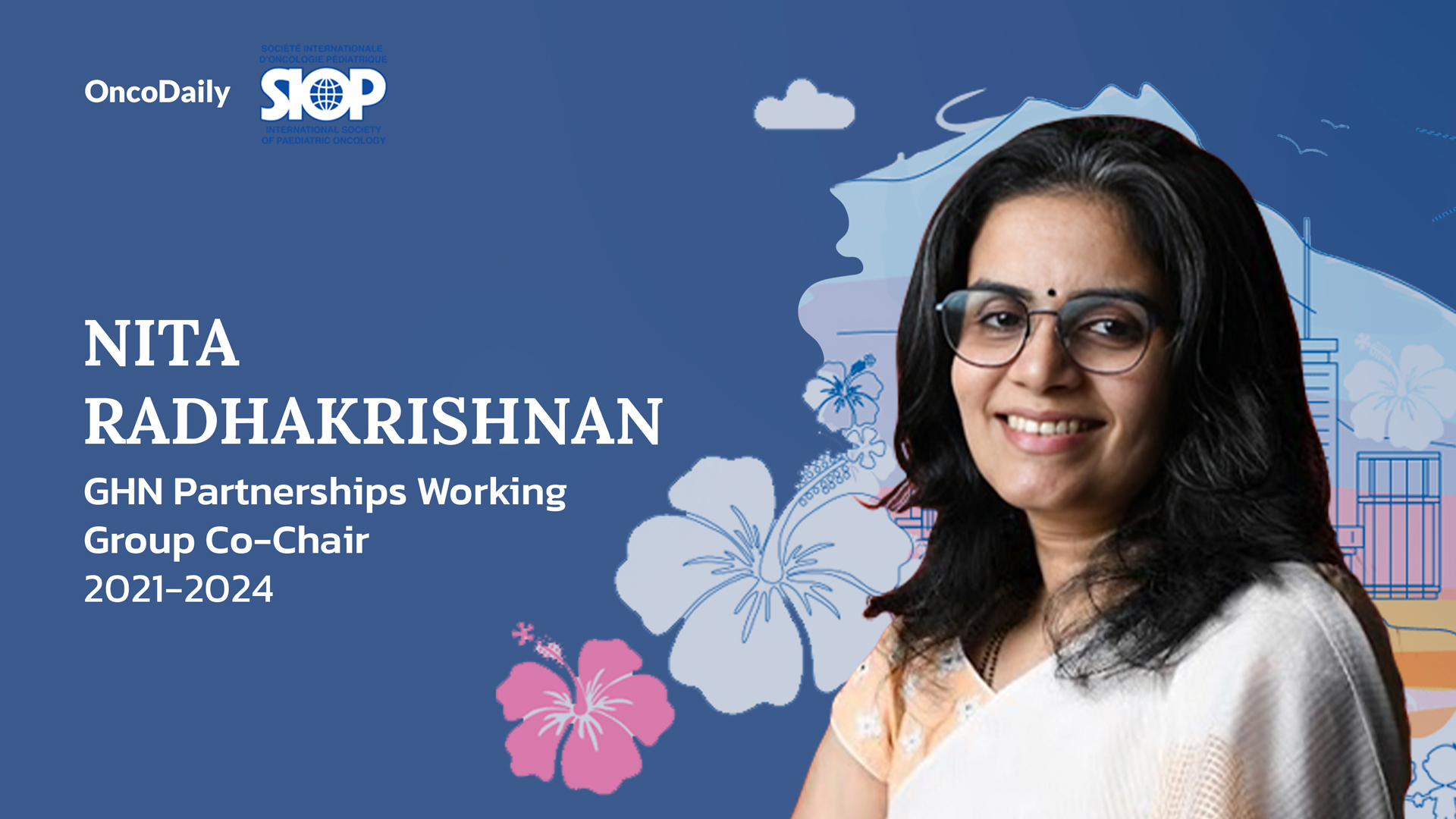Nita Radhakrishnan Recently Completed Her Term as Co-Chair of the GHN Partnerships Working Group from 2021-2024.
Dr. Nita Radhakrishnan is an Associate Professor and the Head of the Department of Pediatric Hematology-Oncology at the Post-Graduate Institute of Child Health in Noida, India. With a strong commitment to advancing cancer care for children, Dr. Radhakrishnan has become a prominent figure in both clinical practice and global health advocacy. She is deeply involved in improving the diagnosis, treatment, and overall care of children with blood diseases and cancers in India and beyond.
As the honorary secretary of the Pediatric Hematology-Oncology Chapter of the Indian Academy of Paediatrics (IAP), the largest professional organization for pediatric medical care providers in India, Dr. Radhakrishnan plays a key role in shaping policy and supporting healthcare providers who care for children with cancer and blood disorders. Her leadership within IAP helps ensure that the latest advancements in pediatric oncology are accessible to practitioners across the country, ultimately improving outcomes for young patients.

Dr. Radhakrishnan also contributes significantly to global oncology initiatives. As Former Co-Chair of the Partnerships Working Group of the SIOP Global Health (International Society of Pediatric Oncology), she works to foster international collaborations that aim to improve childhood cancer care in low- and middle-income countries. Her leadership as Chair of the International Pediatric Association’s Program Area Working Group on Childhood Cancer further strengthens global efforts to ensure that children worldwide have access to quality cancer treatment and care.
In addition to her clinical and advocacy roles, Dr. Radhakrishnan serves on the Editorial Board of OncoDaily, where she shares her valuable insights and expertise in pediatric oncology with a broader audience. Her contributions to the field of pediatric hematology-oncology, particularly in global health and international collaboration, make her a key advocate for the improvement of childhood cancer outcomes around the world.
About GHN Partnerships Working Group
With the World Health Organization (WHO) Global Initiative for Childhood Cancer, there has been a renewed focus on sustainable interventions to improve childhood cancer care in low- and middle-income countries (LMICs). “Twinning” has become a well-recognized strategy, referring to targeted international pediatric oncology partnerships (TIPPs) between institutions in high-income countries (HICs) and LMICs (“North-South twinning”) or between LMIC centers (“South-South twinning”). While these partnerships are valuable, they are typically limited in scope and should not be considered a permanent solution on their own.
The key role of Twinning and the associated Working Group today is to provide resources that maximize the success of such partnerships. The Working Group can offer knowledge and guidance to strengthen these collaborations, and to that end, it published guidelines in Pediatric Blood and Cancer in 2020, outlining the essential components of successful TIPPs and highlighting common challenges to avoid.
A major factor behind the success of most TIPPs is the involvement of a local physician champion. These individuals, often trained abroad, return to their home countries to improve or establish oncology services with the support of an HIC partner, focusing on capacity building. These champions do not require regulation or policing, but they do need a platform to actively network with others in the field. By fostering such connections, the Working Group can help facilitate the success of these partnerships and empower local leaders to make lasting improvements in childhood cancer care.
New Co-Chair of GHN Partnerships Working Group Dr. Mahmoud Elzembely
Dr. Mahmoud Elzembely’s term runs from October 2024 to October 2027.He is a prominent pediatric oncologist and the director of Shefa Al-Orman Children Cancer Hospital in Luxor, Egypt. In this role, he leads efforts to provide specialized cancer care to children in one of Egypt’s key healthcare institutions dedicated to pediatric oncology. Dr. Elzembely also serves as an Assistant Professor of Pediatric Oncology, Malignant Hematology, and Bone Marrow Transplantation (BMT) at the South Egypt Cancer Institute, Assiut University, one of the leading academic institutions in the region.
Currently, Dr. Elzembely is advancing his expertise through the St. Jude Global Scholar program, attending the Masters Program in Global Child Health at the St. Jude Post-Graduate School. This prestigious program allows him to further deepen his understanding of pediatric oncology on a global scale and to apply that knowledge in improving cancer care for children in Egypt and beyond.

His research interests are broad and critical to the field of pediatric oncology. Dr. Elzembely is particularly focused on bone marrow transplantation (BMT), as well as the treatment and management of cancers such as neuroblastoma and retinoblastoma. He is also deeply invested in researching the long-term health effects of childhood cancer treatment, exploring survivorship and the late effects of cancer therapies. This work aims to improve the quality of life and health outcomes for childhood cancer survivors, a crucial aspect of comprehensive cancer care.
Dr. Elzembely’s combined clinical, research, and educational contributions make him a key figure in advancing pediatric oncology in Egypt and in global health discussions surrounding childhood cancer treatment and survivorship. His commitment to improving care and outcomes for children with cancer, particularly in resource-limited settings, continues to have a significant impact on both the local and international oncology communities.
For more information, visit oncodaily.com.
